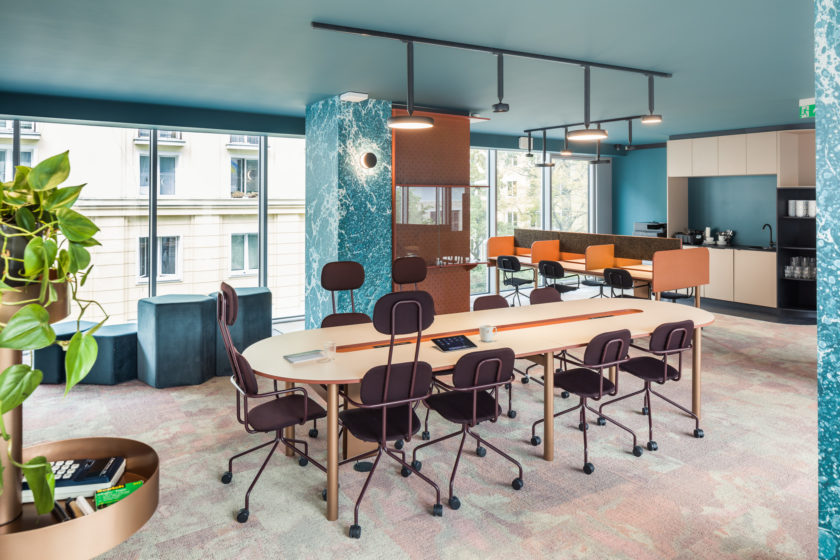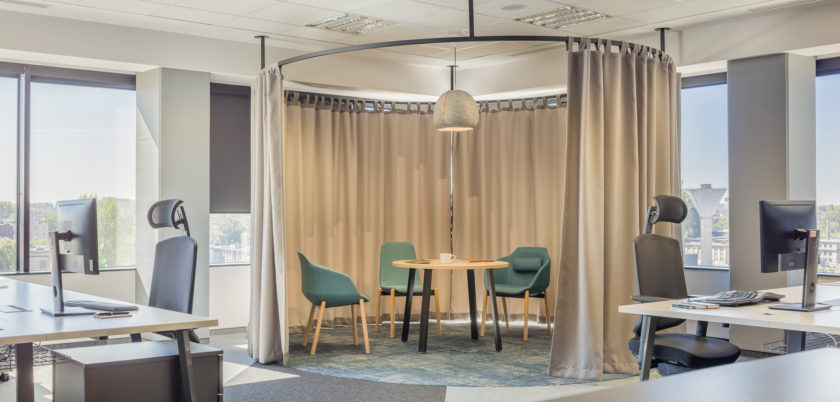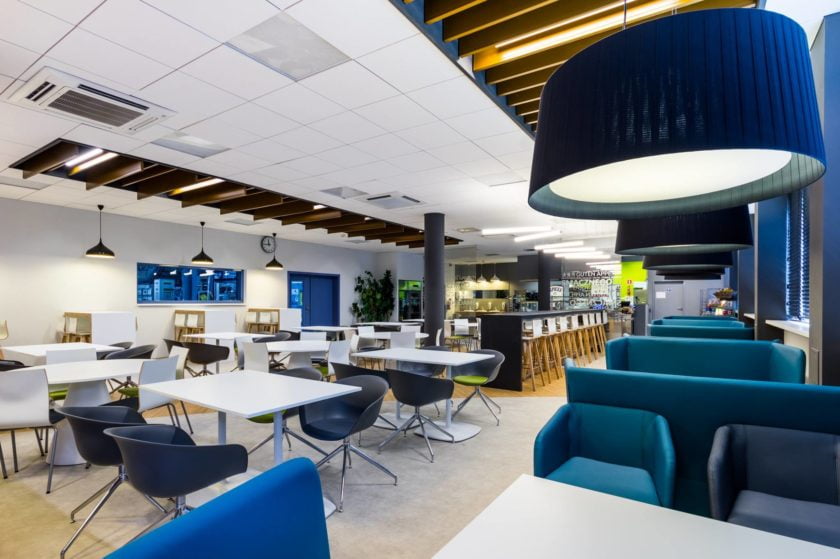Nowadays there is a fear of free movement of information among employees of various companies. Coworking is still more of a place of simultaneous work rather than a place of mutual inspiration and integration. Thankfully, the situation is beginning to shift, freelancers and start-ups begin to understand that coworking space should not be treated as a work-from-home or café substitute.
Coworking is a relatively new form of office space planning. It links the most essential assets of classic employment and self-employment. People working in different areas of business are connected by one area that can consist of communal space, open space, classic office or a conference room.

Beginning
First collective of this kind, Citizen Space, began its activity in 2006 in San Francisco. Recipients of the offer were freelancers from creative industry and people working remotely that were looking for an alternative to the four walls of their own homes. The idea hit the bull’s eye! Nowadays there are nearly 14 thousand such places with almost 1,2 million users globally. That is a bit over 3% of office real estate market but the speed of growth (25% year-on-year) is significant. What is interesting is that they can be predominantly found in the city centres. The reason for it is the same: easy access.

Pros
Convenient location is, according to the users, the main perk of coworking. It is often indicated that coworking has an advantage over working from home where it is easier to get distracted; often even the closest family ignores the importance of it. Distractions such as house chores and children’s activities do not help the matter. All of it distracts and disturbs a person from completing a task. Work-from-home is also associated with loneliness. Not everyone can handle isolation. The need to talk, exchange thoughts and share a coffee break accompanies most of us. A dream job that becomes a burden causes isolation and frustration which result in a general dissatisfaction with life and ineffectiveness.
The devil is in the detail
Coworking centres ensure the opportunity of working individually in an office or in a comfortable open space with access to all necessary equipment. Frequently the offer includes additional services like front desk care, accounting and catering. There is an important aspect that distinguishes a nine-to-five job from coworking: exchanging thoughts and coexistence in community. Communal workspace is more important than an individual office as it is a shared workspace that becomes a center, a cooperation platform and a place of exchanging experiences between specialists of various trades. The trend is primarily visible in United States and Western Europe. As much as 70% of those surveyed by Global Coworking Service underline the strength of human relations, 60% appreciate the prospect of sharing knowledge and a half points out the possibility of establishing new business relations.

Communication support
Dialogue and cooperation were at the root of the Agora line. To check how much the perception of designers and the realistic needs of users correspond to each other MDD and the Swedish project team Form Us With Love tested the Agora line and The New School prototypes in a demanding Stockholm type A house. During a month long use nearly 70 specialists representing various trades verified the functionality of furniture. In this case different points of view guaranteed a success as the purpose of the whole experiment was to perfect the project and achieve an optimal design of the seating before starting the line. The Agora line encourages dialogue and meetings. Quality of the materials used and the simple form constitutes its strength and allows the piece of furniture to be integrated in various arrangements. Modular construction allows us to change the final look of the seat. The essence of the Agora line is exactly the same as the idea of coworking space: to support interpersonal relations and facilitate contact between people with similar, creative approach to work. In order to create an impressive coworking space remember not to treat it as an alternative to a home office or a café but to hit the nail on the head. Private offices, the possibility of renting conference rooms and getting attractive work addresses are all crucial points but the sole idea of coworking is still human interactions.
